
Sir Robert Randolph Garran was an Australian lawyer who became "Australia's first public servant" – the first federal government employee after the federation of the Australian colonies. He served as the departmental secretary of the Attorney-General's Department from 1901 to 1932, and after 1916 also held the position of Solicitor-General of Australia.

The Superior Person's Book of Words is a non-fiction book by Australian lexicographer Peter Bowler. It was first published in Australia as The Superior Person's Little Book of Words in 1979 and subsequently re-published under its current title. The work collects several bizarre, obsolete and supposedly very useful words from the English language. Bowler followed the book up with five companion books, including the 2009 work The Completely Superior Person's Book of Words which included his original book and two others. Godine has reported that the work is one of their bestselling titles and sells between "25,000 to 30,000" copies a year.

Sir Ivison Stevenson Macadam was the first Director-General of the Royal Institute of International Affairs, and the founding President of the National Union of Students.

Sardar Swaran Singh was an Indian politician. He was India's longest-serving union cabinet minister.

Peter Henry Karmel was an Australian economist and professor. He chaired the Interim Committee for the Australian Schools Commission that produced the report Schools in Australia in 1973.
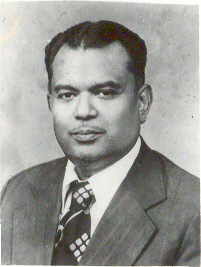
Harris Sam Sahayam Lawrence was an Indian educationalist born in Nagercoil, Tamil Nadu.
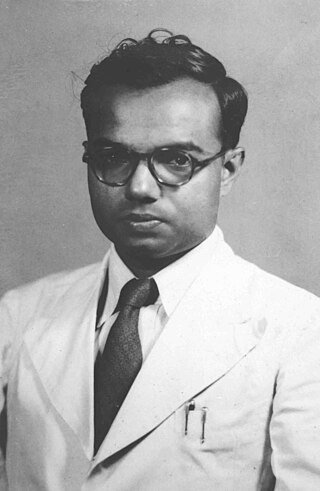
Mapatunage James "M. J." Perera was a Sri Lankan civil servant with nine members in his family in Udumulla, Padukka. He created broadcasting history by being the first Ceylonese Director General of Radio Ceylon, the oldest radio station in South Asia, taking over the helm from John Lampson of the BBC.

The Harvard International Relations Council(HIRC) is a non-profit organization that seeks to promote awareness of international relations based out of Harvard University. As several semi-independent but centrally funded programs, the IRC focuses on a number of different outreach areas in an attempt to engage and inform people on international issues and policy-making. Programs within the IRC include:

Habib Ibrahim Rahimtoola was a Pakistani politician, diplomat primarily based out of Karachi. He served as High Commissioner to the United Kingdom between (1947–52). Rahimtoola also served as Governor of Sindh (1953–54) and later as the Governor of Punjab (1954). He is considered one of the founders of Pakistan for his involvement as a leader of the Pakistan Movement.
David Floyd Lambertson of Kansas served as United States Ambassador to Thailand from September 1991 until August 1995.

Malcolm Sathiyanathan Adiseshiah, was an Indian development economist and educator. In 1976 he was awarded the Padma Bhushan, India's third-highest civilian award. In 1998, UNESCO created the Malcolm Adiseshiah International Literacy Prize in recognition of his contribution to education and literacy. He was nominated to the Rajya Sabha, the upper house of the Parliament of India, in 1978.
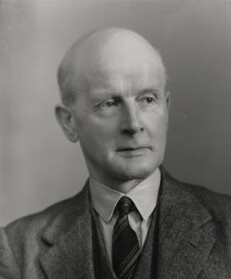
Sir Frederick Clarke was an English educationist who was Director of the Institute of Education in the University of London between 1936 and 1945.
Sir Harold Wyndham was Director-General of Education in New South Wales between 1952 and 1968. He chaired the committee whose report led to the Education Act 1961 which completely re-organised secondary education in NSW.
Prince Chibudom Nwuchewas born in Enugu into the royal family of Clifford Cheta Nwuche and Grace Ogbuta Nwuche. He is from Ochigba town in Ahoada East in the Local Government Area of Rivers State.

Hirendranath Mukhopadhyay, also known as Hiren Mukerjee, was an Indian politician, lawyer and academic. He was a member of the Communist Party of India having joined in 1936 when it was still illegal. He was elected to the Lok Sabha the lower house of the Indian Parliament from the Calcutta North East constituency in 1951, 1957, 1962, 1967 and 1971. He suffered an electoral reverse when he lost to Pratap Chandra Chunder in 1977 after the CPI supported Emergency.
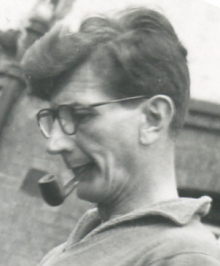
James Nimmo Britton was a British educator at the UCL Institute of Education whose theory of language and learning helped guide research in school writing, while shaping the progressive teaching of language, writing, and literature in both England and the United States after the Dartmouth Conference (1966) of Anglo-American English educators.

Lieutenant Colonel William Roy Hodgson, was an Australian soldier, public servant and diplomat. His significant achievements were being involved in the formation of the United Nations General Assembly and representing Australia internationally at many diplomatic conferences during the Second World War, and being a member of the drafting committee of the UN Universal Declaration of Human Rights.

Jnanendra Nath Mukherjee CBE, FRSC was an Indian colloid chemist.
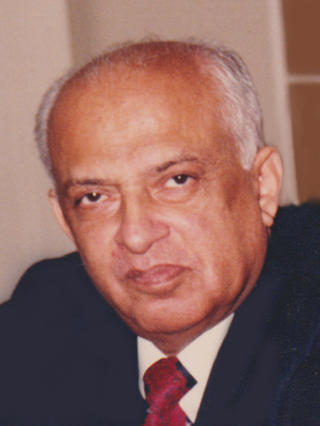
Mumtaz Ali Kazi, popularly known as M.A. Kazi, was one of Pakistan's leading scientists and educators. He was President of the Pakistan Academy of Sciences from 1978 to 1988 and President of the Chemical Society of Pakistan from 1977 to 1990.
William Leslie Renwick was a New Zealand educationalist. He was educated in Northland and Auckland before training as a teacher at Auckland Teachers' Training College. After working as a teacher and gaining a BA from Victoria University of Wellington, he was appointed as a researcher to the Commission on Education. After a number of school inspector positions within the Department of Education, he was appointed Director-General of Education in 1975. Retiring from the department in 1988, he took up a research position at the Stout Research Centre in Wellington. He performed background research on Treaty of Waitangi claims, and wrote an extensive review for the University of Waikato on their handling of complaints against a doctoral student. He had a variety of committee and board roles in New Zealand and overseas, including as a council member of the University of the South Pacific, a member of the OECD Education Committee, chair of the New Zealand National Commission for UNESCO, a member of the governance board for the Commonwealth of Learning, and as a member of the QEII Arts Council and the advisory committee of the historical branch of the Department of Internal Affairs.















